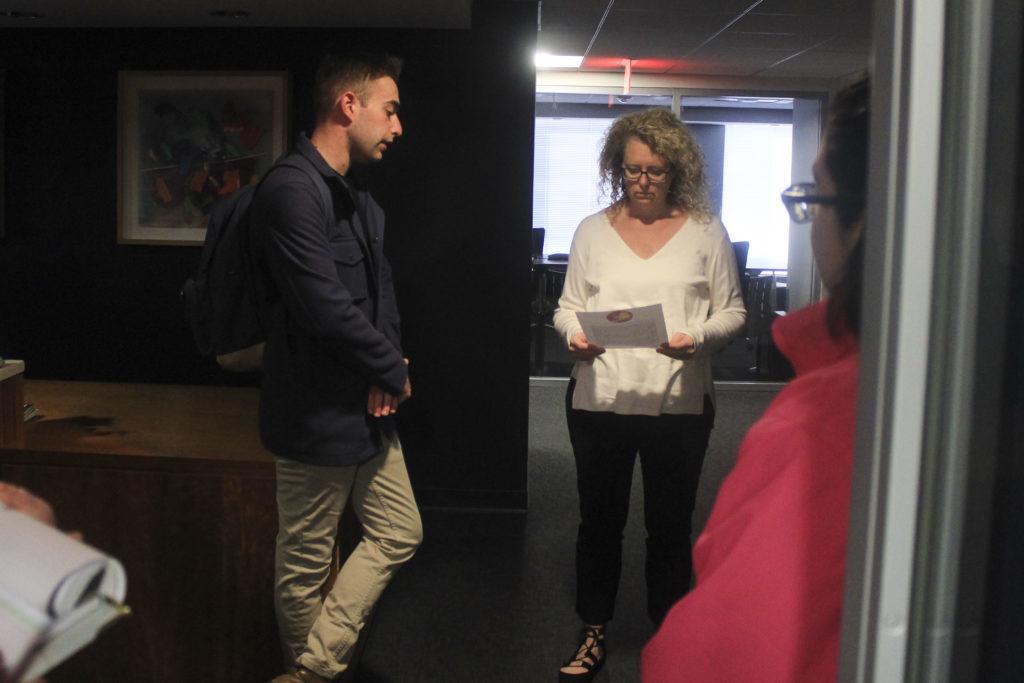A student group delivered a letter Monday morning to a University official demanding better treatment for the University’s custodial staff.
Six students from Fair Jobs GW – an organization dedicated to bettering the lives of GW workers – visited Rice Hall’s seventh floor to voice concerns to Alicia Knight, the senior associate vice president of operations.
Members of the organization said they want GW to reduce the difference in treatment between those hired by the University and employees from a third party contractor, like Aramark, who are paid less and receive less benefits.
Though Knight was unavailable at the time of delivery, Fair Jobs GW representatives left the letter and a time frame for Knight’s response with a senior adviser.
Alexa Zogopoulos, a junior in Fair Jobs GW, said the letter’s intent is a “kickoff” to draw attention to the issue and create correspondence with administrators.
“Workloads have increased a lot, and there’s a possibility that GW has kind of been like using these not ideal circumstances to push people into retirement who are on the University’s side because it’s cheaper for them to have third party laborers,” Zogopoulos said.
Zogopoulos added that although GW officials are not inclined to be flexible on these issues, their pressure has been helpful in creating transparency in the University’s intended actions.
Henry Klapper, a Fair Jobs GW senior representative and former Hatchet reporter, said it was revealed to the group that custodial workers were coerced into early retirement as a means of union busting and breaking organized labor on campus last year during their campaign concerning the relocation of J Street workers.
Klapper said the group did not have the time or means to push for action until now.
“A lot of janitorial staff have been reaching out to us asking if there is anything we can do,” Klapper said. “That’s when we started really thinking about it.”
Their previous campaign started with a similar letter delivery to Knight, but Klapper said she did not give the workers and students the attention they wanted.
Klapper added that if there is no meeting or correspondence between Fair Jobs and Knight before March 31 they will set up strategy meetings with workers and repeat last year’s demonstrations.
“We made it clear to Alicia Knight through one way or the other, be it marches or more letter deliveries or other types of campaigns, that the students knew about the problem that was going on,” he said. “We weren’t going to forget about it because she kept postponing a meeting.”





